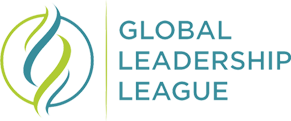
Dear Sophia,
The Covid-19 pandemic hit us like the hammer of Thor in 2020, pummeling us from every direction and ultimately affecting our financial life. Where do I go from here? How can I reinvent myself? Do I nurture only my strengths or build upon my weaknesses? The fear of failure in a career transition is very real. I want to be happy in my choice of employment but in a pandemic, following your passion does not guarantee profitability. Relocation seems almost a certainty to land the perfect job. How can I truly trust the long-distance move (once found) will work out? I know that with failure comes inevitable growth. I do not want a career transition to be paralyzing. I am an educated woman with many talents! I volunteer locally. I extend myself on social media platforms and online groups. The fear of the unknown is real. I ask myself: (a) Don't they see my talents? (b) Where is that perfect job? (c) Do I need to relocate to find my next employer? (d) What am I doing wrong? (e) Am I doing enough?
Sincerely,
Slowly Sinking

Dear Slowly Sinking,
The pandemic has, indeed, been a pummeling experience! I can’t name one friend who felt totally prepared or anyone who didn’t want to jump off the roller coaster ride at some point. It’s understandable why imagining a career transition strikes you with fear of failure. You’ve already identified you have lots of talents, education, and networks at your disposal. To minimize getting overwhelmed, let’s break this down into some bite size pieces:
-
Write down your priorities. What do you want most in a new job? Is relocation really necessary? Can you widen your search to include more types of positions in your current area? We have the pandemic to thank for more fully remote positions so be sure to consider this option too. I suggest focusing on a defined geographic area and remote positions first and dedicating more energy to identify transferable skills desirable in a wide variety of positions. Focus less on looking for the “perfect” job and more on the skills and talents you bring or can learn in a new role.
-
What’s a potential timeline you are working with? Do you need a new job now, or do you have time to explore? If you need a new job quickly, then move to tailor your resume, LinkedIn profile and endorsements, and/or personal website to highlight your accomplishments and transferable skills. If you have more time, review several resources like books or podcasts centered on the topic of career alignment and transitions. Designing Your Life by Bill Burnett and Dave Evans is a book I really liked. It teaches design thinking to use “prototypes” and test them to build a career and life that works for you. Don’t forget the Global Leadership League’s Career Connections matches League members to explore and discuss career paths. Never forget the power of asking your friends or colleagues for insight--they might have perspective on your skills or personality that you can’t easily see.
-
Does the perfect job really exist? It’s tempting to seek certainty that a job change will match your expectations. Stay focused on the knowledge you did your research to match your skills and capacity for growth, align the new role with your values, understand the organizational culture, etc., and you’ve made a well informed decision. If the new position doesn’t work out you’ve no doubt learned new skills, and built new networks that position you for the next opportunity. Don’t be afraid--once you clear the hurdle of preparing for a job change you can get excited to reinvent yourself!
-
How can you demonstrate your talents to potential employers? Once you’ve identified some possible new employers, use your network to request an informational interview to ask questions and share about you and your talents in 15-20 minute conversations. Informational interviews give you exposure in the hidden job market, boost self-esteem, and prepare for a future job interview.
Try to look at the steps above like exercises that will define your muscles by increasing your self-confidence and gearing you up for what’s next. Eventually life will begin to feel “normal” again thanks in part to the vaccinations and the resumption of some of our pre-pandemic routines. Before getting too settled, consider the suggestions above. In my experience, the exploration will continue to serve you well no matter what is going on in the world.
Confidentiality yours,
Sophia
P.S. Now that I’ve shared my thoughts, I’m curious what the amazing community of educators reading this post have to say. Chime in, folks! What thoughts do you have for Slowly Sinking? Share your thoughts on the Global Leadership League’s LinkedIn page. Have a question for Sophia yourself, ask here!
Please note: This response is provided for informational purposes only. The information contained herein is not legal advice and should not be used as a substitute for the legal advice or legal opinions of a licensed professional. Contact a personal attorney or licensed professional to obtain appropriate legal advice or professional counseling with respect to any particular issue or problem.
